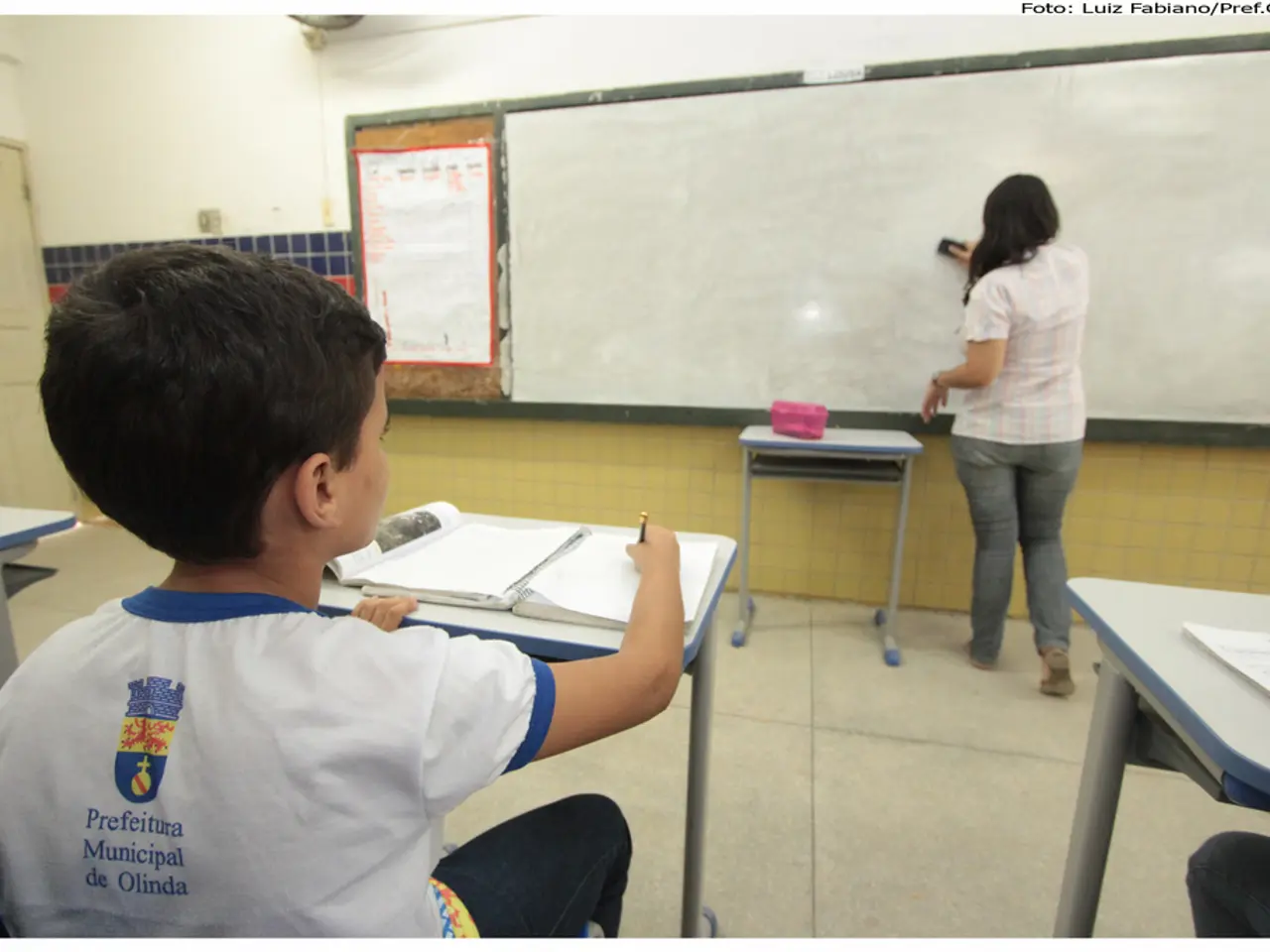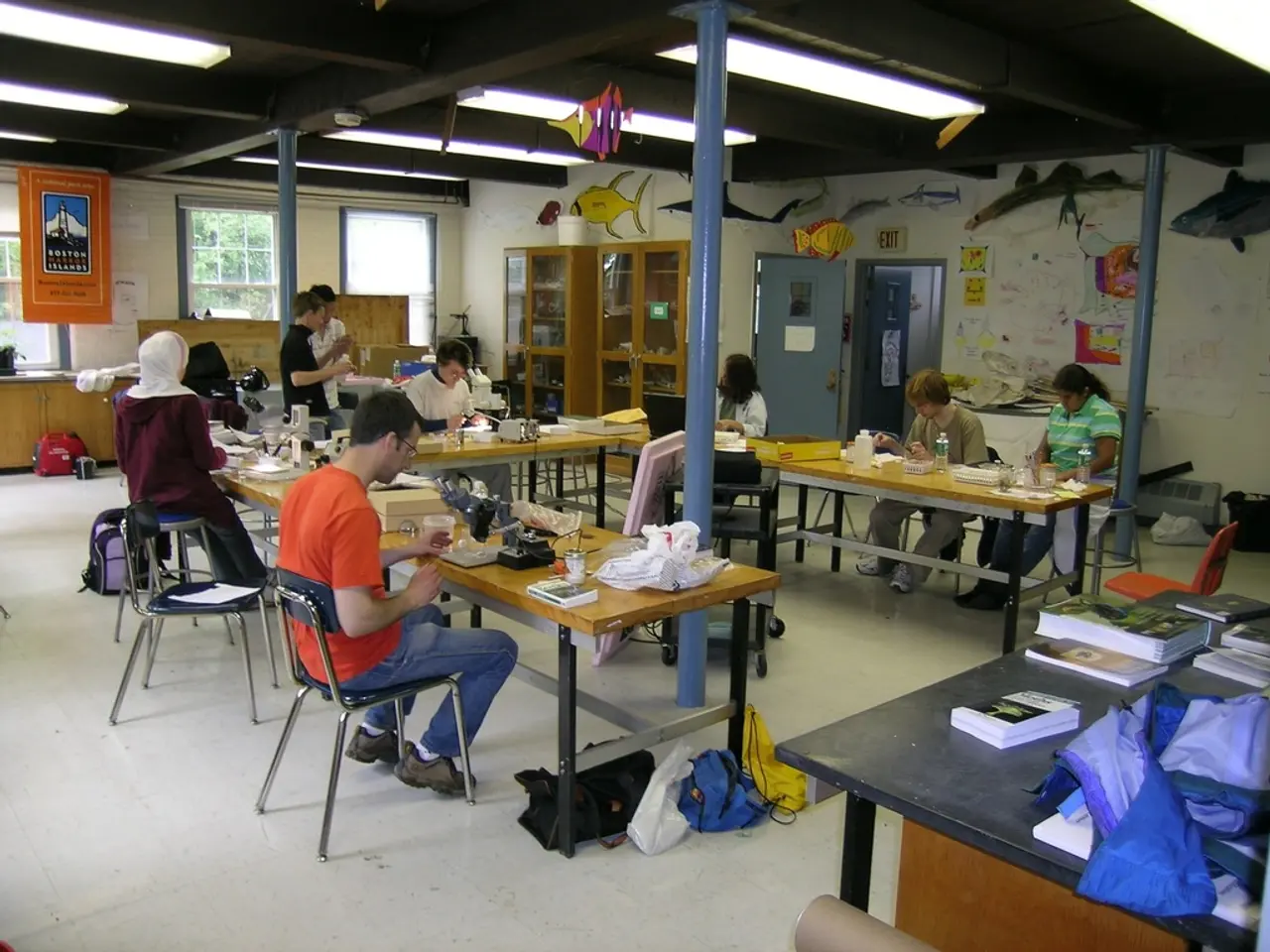Government leader meets with Alihan Smailov, delivering a series of commands
### Modernizing Public Financial Management: Key Changes and Initiatives in Kazakhstan (First Half of 2025)
#### Expanded Audit Scope and Digital Transformation
In the first half of 2025, the Supreme Audit Chamber of Kazakhstan conducted a significant increase in audits, covering 20 trillion tenge - a 7.1-fold increase compared to the same period in 2024. Sectors audited included secondary education, pharmacological support, digital development, electricity supply, and elite sports.
President Kassym-Jomart Tokayev has directed the Supreme Audit Chamber to implement modern digital technologies to enhance control over government spending. This aims to reduce inappropriate expenses and ensure maximum return on national resources. Over 60 recommendations and 450 regulatory paragraphs were submitted to the government and relevant entities, with materials on 20 cases forwarded to law enforcement.
#### Legislative and Institutional Reforms
Legislative changes now authorize the Supreme Audit Chamber to audit extra-budgetary funds, expanding its oversight beyond the traditional state budget. The composition and activities of the Commission for Monitoring the Use of Funds from the National Fund were revised to increase transparency and strengthen control over spending.
The government has introduced measures to enhance the accountability of heat supply enterprises and their leadership for disruptions during the heating season preparation. There is also an expansion of state control over commercial gas retail prices for all market participants.
#### Broader Context and Economic Strategy
These audit and control reforms are part of a broader national agenda to improve governance, attract investment, and ensure sustainable growth. Kazakhstan reported 6% GDP growth in the first half of 2025 - the fastest in 12 years - driven by logistics, trade, and construction.
While the focus on digitalization and legislative empowerment of audit bodies is clear, the government is simultaneously pursuing large-scale infrastructure upgrades and investment-friendly reforms, aiming to position Kazakhstan as a stable, transparent, and reform-oriented jurisdiction.
#### Summary Table: Key Changes and Initiatives
| Area | Key Changes/Initiatives | Impact/Outcome | |-----------------------------|---------------------------------------------------------------------------------------|--------------------------------------------------| | Audit Scope | 12 audits, 20 trillion tenge covered; digital tech adoption | Enhanced oversight, reduced inappropriate spend | | Legislative Authority | Audits expanded to extra-budgetary funds; new monitoring mechanisms for National Fund | Broader, more transparent fund control | | Accountability | Increased responsibility for heat supply disruptions; expanded gas price controls | Strengthened public service accountability | | Digitalization | Presidential directive to apply modern digital tools | Improved efficiency and transparency in audits | | Economic Context | Part of broader reforms, infrastructure push, and pro-investor policies | Sustained high GDP growth, investor confidence |
These measures reflect a concerted effort to modernize Kazakhstan’s public financial management, strengthen legislative oversight, and leverage digital tools for greater accountability and efficiency in the use of state resources.
Television news outlets reported on the government's policy-and-legislation initiatives, highlighting the expansion of the Supreme Audit Chamber's audits, now including extra-budgetary funds, within the context of modernizing Kazakhstan's public financial management. The general news also discussed President Kassym-Jomart Tokayev's directive to implement digital technologies for enhanced control over government spending, aiming to reduce inappropriate expenses and ensure maximum return on national resources, which were topics of intense political discussion.







